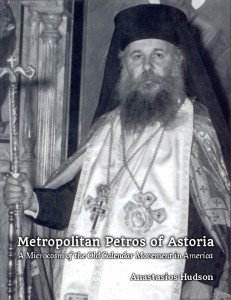The Holy Apostles in History
Dear Friends in Christ,
Summer is here again, but was there really a Spring this year in North Carolina?! We’ve all been trying to cope with the heat in various ways. I’m certainly thankful that our Church building has great air conditioning, especially when I serve the liturgy wearing several layers of vestments!
With summer comes one of the four fasting seasons of the year, the Apostles’ Fast. This fast varies in length each year based on when Pascha occurs. It can be anywhere from 8 to 42 days; this year, it is 22 days (June 20 through July 11, on the civil calendar). It’s a time when we can take a break from all the festivities of summer to refocus our spiritual priorities and honor the Holy Apostles who carried the Gospel to the ends of the known world.
Why do we have this fast? As we know from Scripture, “And Jesus said unto them, Can the children of the bridechamber mourn, as long as the bridegroom is with them? but the days will come, when the bridegroom shall be taken from them, and then shall they fast” (Matthew 9:15). Christ ascended to Heaven 40 days after Pascha, and then on the 50th day, the Holy Spirit descended on the Apostles, and they went out to preach. Holy Tradition teaches us that the Apostles’ Fast comes from their desire to prepare for their missionary activity by fasting, just as Jesus had fasted before beginning his ministry, and as He stated they would do when He was no longer with them (Jesus is the Bridegroom in the verse above).
The Holy Apostles hold a great place of honor in the Church. They were witnesses to the Resurrected Lord, and their preaching, having been given great power by the Holy Spirit, converted thousands to the Church. They passed their authority on to apprentices, who took up the leadership role we know as the office of bishop. In fact, the Apostles and their ministry was part of what prompted me to become an Orthodox Christian (for those who do not know already, I was raised Lutheran).
Back when I was a Protestant, we used to hear a lot about the Bible. We also used to hear a lot from 16th century Reformation authors like Martin Luther, whose catechism we studied in confirmation class. Finally, the minister and Church leaders often incorporated modern authors into their sermons and talks. But what we never heard about, at least in the Churches I was a member of, was the teachings of those who came between the Bible and Martin Luther—1400 years of Church history!
There was a general feeling that after the Bible, things “went wrong” as the Catholic Church arose, adding to Scripture doctrines that were not originally found. I wondered, however, what happened after the Apostles? Did things really “go wrong?” What were the original beliefs, and how was the Bible originally understood? I had heard that Thomas went to India, and that Peter and Paul died in Rome, but I imagined that their Churches were a loose confederation of independent bodies, having differing opinions on various teachings. I was sure wrong!
Discovering that there were bishops in each of these places today, who stood in a direct line from the Apostles, had a profound effect on me. Studying the history between point A and B, then, led me to understand that after the Apostles was a rich history that I, as a Protestant, was quite ignorant of. Eventually, I became an Orthodox Christian, because I realized that the Apostles and their teaching, and that of their successors (whose writings are also preserved) were Orthodox. The Orthodox Church today is the same Church as the Churches established by the Apostles.
On June 29 (July 12 on the civil calendar), we will celebrate the feast of Saints Peter and Paul, who ministered primarily to Jews and Gentiles respectively, and were martyred in Rome in the first century. This will be the end of the Apostles’ Fast. The next day, we will celebrate the Feast of all the Holy Apostles. For those wishing to learn more about what happened to each of the Twelve Apostles, I recommend the book The Lives of the Holy Apostles by Holy Apostles Convent. For those wishing to know more about how the early Church developed after the death of the Twelve Apostles, I recommend the book The Early Church by Henry Chadwick.
When studying their lives, remember that the word Apostle comes from the Greek verb “apostello,” which means “to send out.” The Holy Apostles were ones sent out on mission. We have been placed by God in Greenville, North Carolina, in order to be on mission here among our neighbors, friends, and family. Let us learn from the Holy Apostles, and ask their intercessions, that we will imitate their ways and spread the Church of Christ throughout Eastern Carolina, and anywhere else we may be called!
In Christ,
Fr. Anastasios


